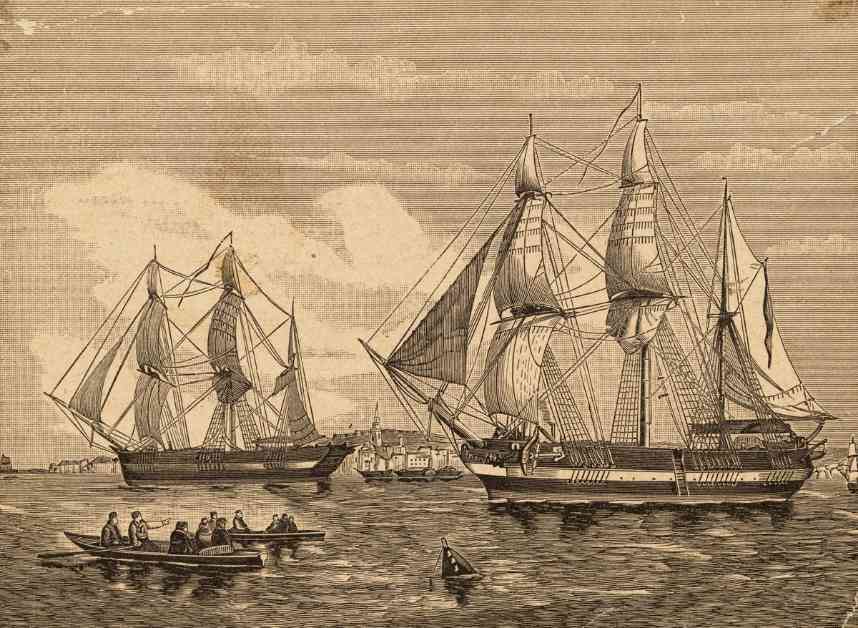A recent DNA analysis has revealed the identity of Captain James Fitzjames, a Royal Navy officer who disappeared during the ill-fated Northwest Passage expedition led by Sir John Franklin in the mid-1800s. The expedition, which set sail in 1845 with 129 men on board the ships HMS Erebus and HMS Terror, aimed to navigate the Arctic route connecting the Atlantic and Pacific oceans. However, both ships became trapped in ice, leading to the demise of the entire crew.
After Franklin’s death, Fitzjames took over as the commander of HMS Erebus, which also got stuck at King William Island. While skeletal remains of many sailors were discovered on the island in the 19th century, Fitzjames is only the second individual to be identified through DNA analysis. Researchers extracted DNA from a tooth attached to a jawbone found among a heap of human bones and teeth and matched it to a living relative, who was the second cousin of Fitzjames five times removed.
The study’s lead author, Douglas Stenton, along with his team at the University of Waterloo in Canada, conducted the DNA analysis and found that Fitzjames was likely a victim of cannibalism. Cut marks on the jawbone and other recovered remains suggest that survivors resorted to consuming parts of Fitzjames’ body, as well as those of other sailors, in a desperate attempt to survive the harsh conditions.
Fitzjames also left behind a note at Victory Point on King William Island, detailing the death of crew members and the decision to abandon the ship and trek to Back River in Nunavut. Unfortunately, none of the crew made it to their destination, and search parties later discovered their remains scattered across the island. The oral accounts of the Inuit people, who guided searchers to the skeletal remains, supported the findings of cannibalism among the expedition members.
This recent discovery adds to the limited number of identified individuals from the Franklin expedition, shedding light on the harrowing experiences faced by the crew as they struggled to survive in the unforgiving Arctic environment. The research not only highlights the historical significance of the ill-fated expedition but also underscores the resilience and sacrifices made by those who ventured into the unknown in pursuit of discovery.
As we continue to unravel the mysteries of past explorations, these findings serve as a poignant reminder of the challenges and perils faced by early explorers in their quest for knowledge and adventure. The story of Captain James Fitzjames and his fellow crew members is a testament to the indomitable human spirit and the enduring legacy of those who dared to venture into uncharted territories.










